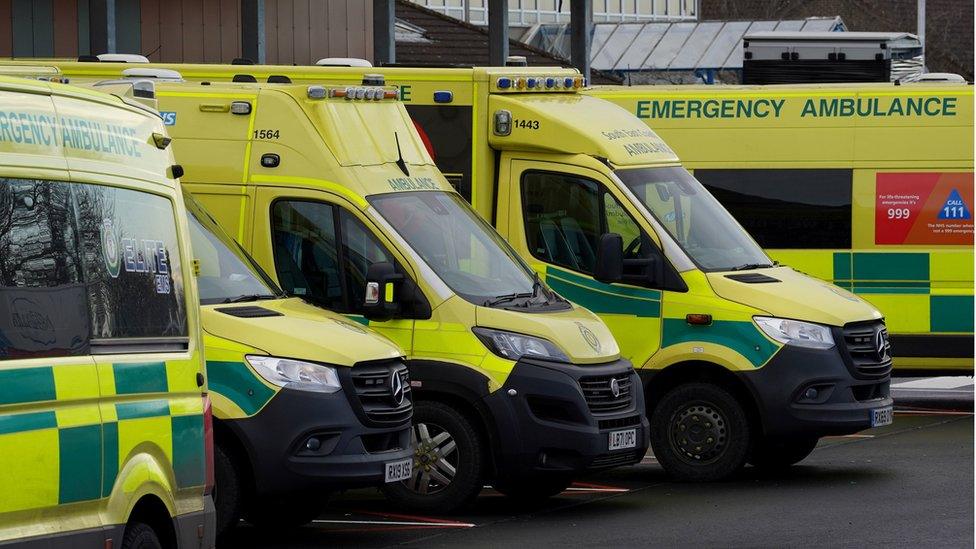South East Coast Ambulance workers strike over pay and conditions
- Published
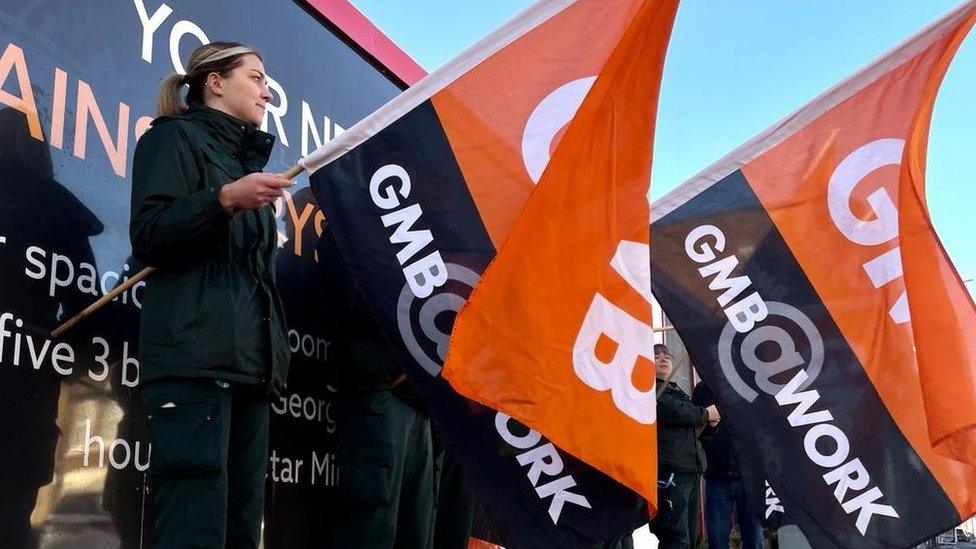
Members of the GMB union working for the South East Coast Ambulance on strike in Medway
Striking ambulance workers have formed picket lines across the South East in a dispute over pay and working conditions.
The dispute is principally over a pay offer of 4.75% from last year being considered too low with the rising cost of living.
Striking staff at Medway Ambulance Station in Chatham said they have "never known such a mess".
Health Secretary Steve Barclay said the walkout was "extremely regrettable".
The public were urged by the NHS to "use health services appropriately" ahead of the industrial action.
NHS services in the South East have faced sustained pressure this winter, with Surrey and Sussex NHS Trust, Medway Maritime Hospital and South East Coast Ambulance Service (Secamb) all declaring critical incidents in December.
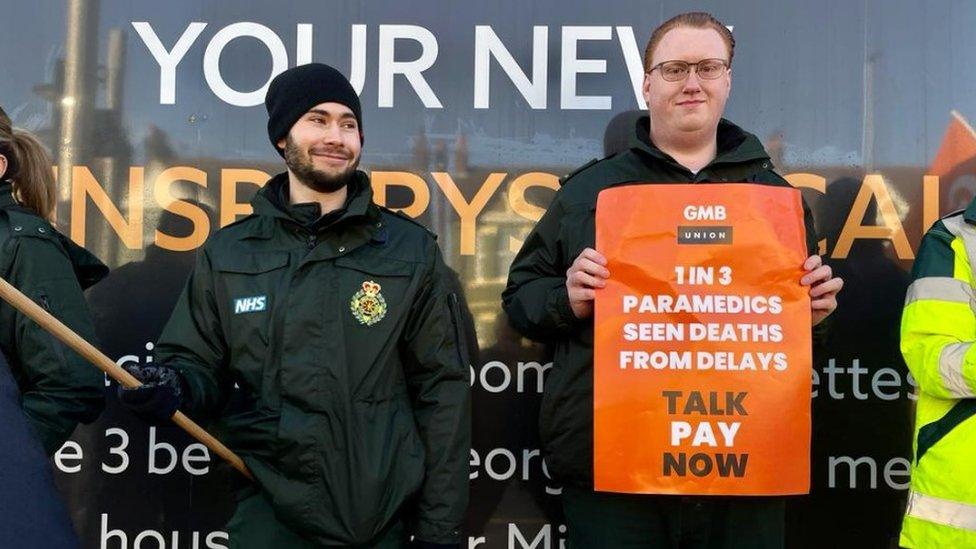
Picket lines have formed across Kent, Sussex and Surrey
Jackie Jarvis has worked as a paramedic for 16 years and for South East Coast Ambulance Service (Secamb) since 2016.
"It feels like we're the backbone of the NHS but that's not how it should be, we don't want to feel like we are picking up the pieces," she said on a picket line in Medway.
She spoke of the serious problem of calls being incorrectly graded, adding: "It's very stressful trying to meet our targets to get to patients - I've never known such a mess."
Ian Grimble has worked as an assistant ambulance practitioner and student paramedic for Secamb since 2008.
"We're asked to do more and more, and that impacts on the patient-facing side of care," he said.
Mr Grimble added that patients were waiting longer as they struggled to reach them. He blamed capacity issues and lack of care provision for causing the service to get held up.
He said: "This is the worst I've seen in 15 years, it's totally changed."
Mr Barclay said the government had contingency plans in place, including support from the military.
"Today's ambulance strike is an unwelcome return to unnecessary disruption and comes at a time when the NHS is already under huge pressure from Covid and flu," he said.
At Prime Minister's Questions on Wednesday, Rishi Sunak said the government had been clear that it wanted to have a "constructive dialogue" with unions, and the government had followed the recommendations of the independent pay bodies.

Follow BBC South East on Facebook, external, on Twitter, external, and on Instagram, external. Send your story ideas to southeasttoday@bbc.co.uk, external.
Related topics
- Published10 January 2023
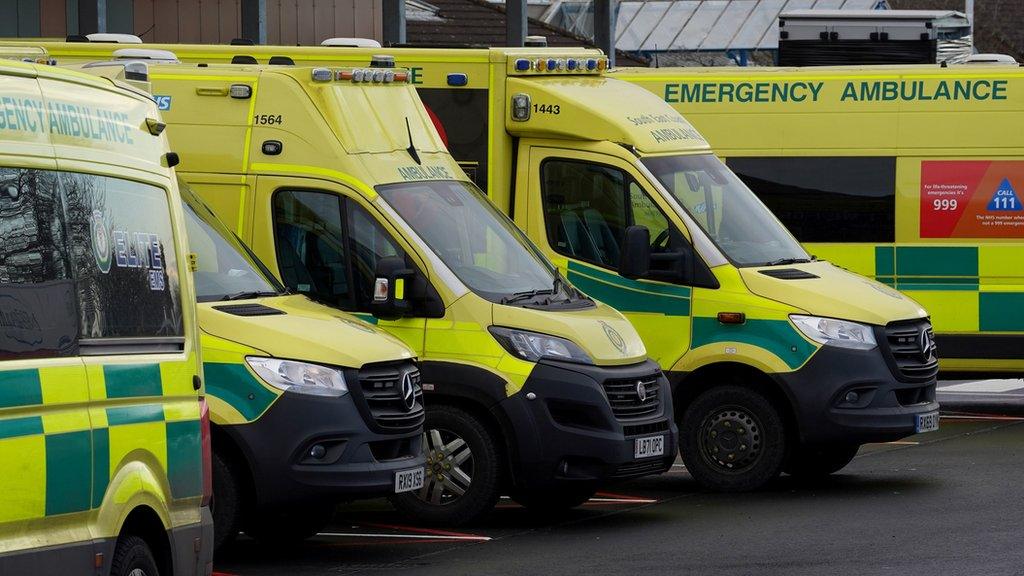
- Published22 December 2022
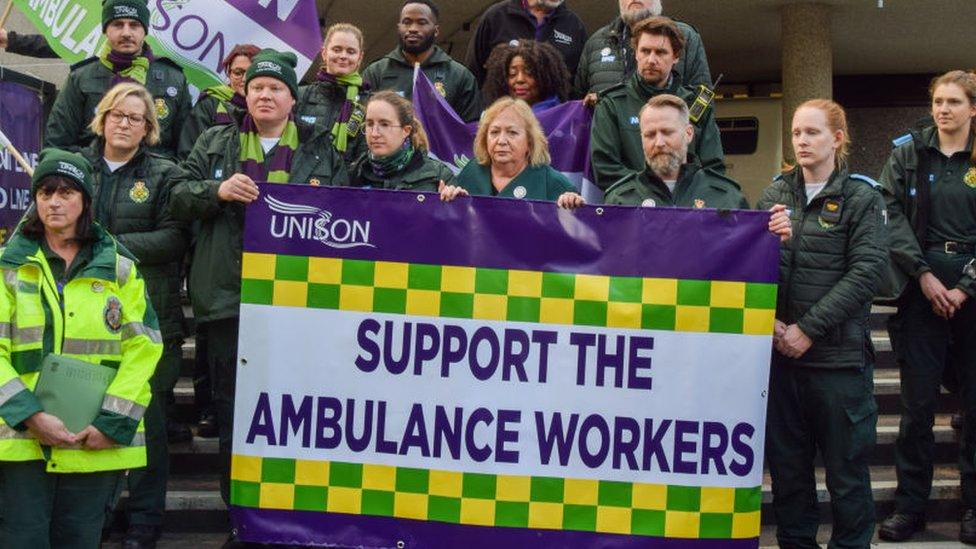
- Published20 December 2022
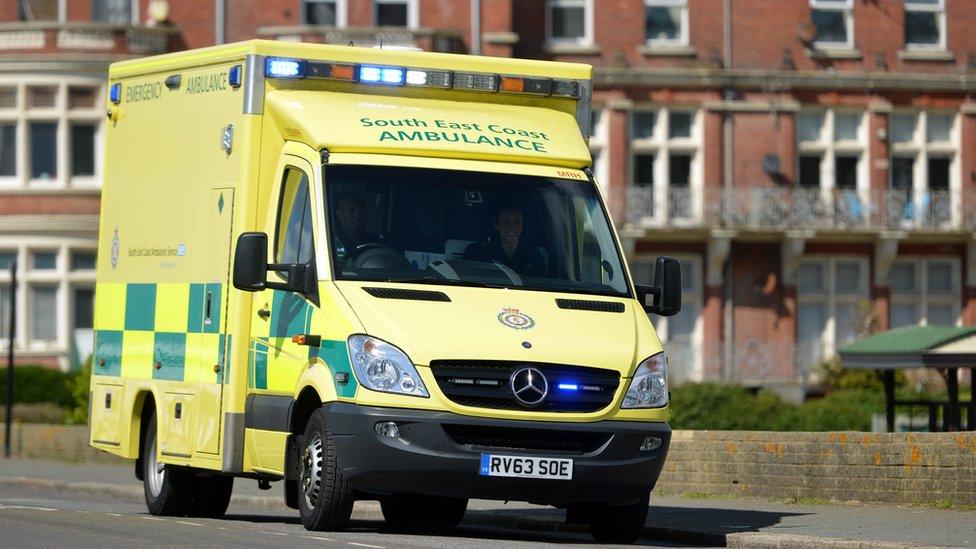
- Published30 December 2022
